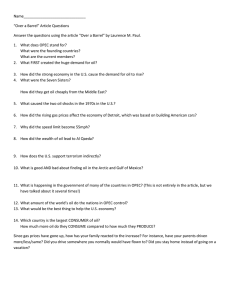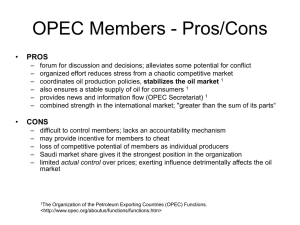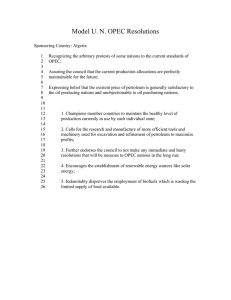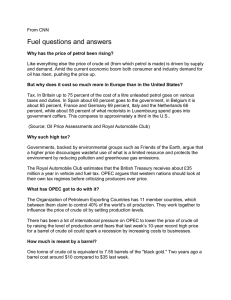Oil Problems
advertisement
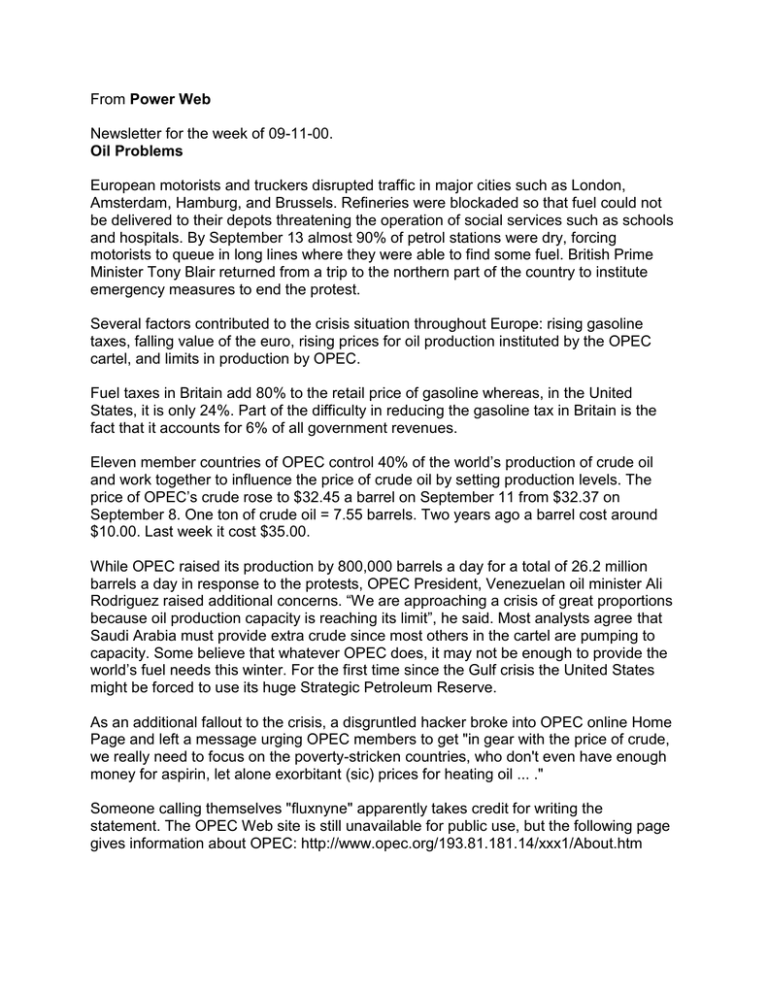
From Power Web Newsletter for the week of 09-11-00. Oil Problems European motorists and truckers disrupted traffic in major cities such as London, Amsterdam, Hamburg, and Brussels. Refineries were blockaded so that fuel could not be delivered to their depots threatening the operation of social services such as schools and hospitals. By September 13 almost 90% of petrol stations were dry, forcing motorists to queue in long lines where they were able to find some fuel. British Prime Minister Tony Blair returned from a trip to the northern part of the country to institute emergency measures to end the protest. Several factors contributed to the crisis situation throughout Europe: rising gasoline taxes, falling value of the euro, rising prices for oil production instituted by the OPEC cartel, and limits in production by OPEC. Fuel taxes in Britain add 80% to the retail price of gasoline whereas, in the United States, it is only 24%. Part of the difficulty in reducing the gasoline tax in Britain is the fact that it accounts for 6% of all government revenues. Eleven member countries of OPEC control 40% of the world’s production of crude oil and work together to influence the price of crude oil by setting production levels. The price of OPEC’s crude rose to $32.45 a barrel on September 11 from $32.37 on September 8. One ton of crude oil = 7.55 barrels. Two years ago a barrel cost around $10.00. Last week it cost $35.00. While OPEC raised its production by 800,000 barrels a day for a total of 26.2 million barrels a day in response to the protests, OPEC President, Venezuelan oil minister Ali Rodriguez raised additional concerns. “We are approaching a crisis of great proportions because oil production capacity is reaching its limit”, he said. Most analysts agree that Saudi Arabia must provide extra crude since most others in the cartel are pumping to capacity. Some believe that whatever OPEC does, it may not be enough to provide the world’s fuel needs this winter. For the first time since the Gulf crisis the United States might be forced to use its huge Strategic Petroleum Reserve. As an additional fallout to the crisis, a disgruntled hacker broke into OPEC online Home Page and left a message urging OPEC members to get "in gear with the price of crude, we really need to focus on the poverty-stricken countries, who don't even have enough money for aspirin, let alone exorbitant (sic) prices for heating oil ... ." Someone calling themselves "fluxnyne" apparently takes credit for writing the statement. The OPEC Web site is still unavailable for public use, but the following page gives information about OPEC: http://www.opec.org/193.81.181.14/xxx1/About.htm
